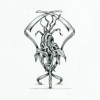-
Similar Content
-
By BuckSteady
New hunter to NY here. Found some public land to hunt, it’s a WMA. I wish I read the regs more thoroughly because I threw up a ladder stand yesterday and today when I was re-reading them, I saw you can’t put temporary stands on WMAs, only on state forests and other such state land. I honestly didn’t know I wasn’t allowed to, I even put my name and license # on the stand. I was going to go take it down tomorrow but it’s an hour drive so I wanted to ask, what do DEC officers do if they find a ladderstand like mine on a WMA? Is this an automatic fine or whatever? Will they just call me and tell me to come get it? Confiscate? How often do officers go through areas like WMAs and check for stands? Any info would be helpful. I’ll still probably go take it down tomorrow, although I have seen other stands up on the WMA, I just prefer to stay on the right side of the law myself. Thanks!
-
By CapDistPatriot
Southern Zone only. I don't understand why they don't include rifle, only Bow & Muzzy...
https://www.dec.ny.gov/press/121333.html
-
By Rebel Darling
Here is DEC's harvest forecast for whitetail during the 2016 hunting season:
http://www.dec.ny.gov/docs/wildlife_pdf/deerforecastr4.pdf
Interesting info... I doubt my WMU, 4L will ever have doe tags, and it's interesting to read that DEC is concerned by possible "misuse" of the 4J doe tags.
-
By mike rossi
By now you might understand the utility of the information we are sending you and why we are sending it to you. If you are still cursing us out or scratching your head because you are not quite there yet, please stick around!
Below is a summary we compiled which reflects the central premises of anti-hunting activists both in general and specific to dove hunting. (In the future we will adapt this to pheasant stocking, Sunday hunting, and young forest management).
Categories of arguments are grouped and typical premises of each category are listed.
For your convenience the same information is attached to this email as a pdf file which can be downloaded and saved to your computer.
Catalog of Arguments Frequently used by Anti-Hunting Organizations and Activists
Hunter Attitude and Behavior Arguments
1. Lack of interest in retrieving doves.
2. Hunters do not retrieve or eat doves but rather use them for target practice. Comments made by hunters, outdoor writers, and hunting spokespersons which reflect that or can be construed as such, are frequently quoted by anti-hunters and the media.
3. Dove hunting practices are cruel/inhumane/unethical/immoral/unsporting
4. How hunting causes suffering to doves, for example wounding and not retrieving.
Social Imbalance Arguments
1. Expanding hunting opportunity will contract opportunity for non-hunting activities.
2. Participation in hunting is shrinking and there is more revenue generated and greater participation in other outdoor activities. Policy should favor the majority.
3. Expanding hunting opportunity will make NY less desirable for non-hunting recreation which will result in lost revenue for the state and local economies.
4. The vast majority of hunters are middle aged or older Caucasian males.
Power and Control Arguments
1. Decisions should be made by majority rule (voting).
2. Hunting policy is decided under a rigged system tainted by favoritism, politics, special interests, money, and abuse of power.
3. State wildlife agencies mismanage wildlife to accommodate hunters because hunting license revenue is their primary source of funds.
4. A pro-hunting culture exists within the DEC.
5. There is no anti-hunting representation on the Conservation Fund Advisory Board and the Fish and Wildlife Management Board. At least one representative of the Humane Society of the United States should be appointed to these boards to represent the interests of the broader public, not just hunters.
Public Participation Arguments
1. Anti-hunters claim they are disenfranchised from the decision making process, the extent to which they are involved, the nature of their involvement.
2. Lack of transparency of the decision-making process exists.
3. Public notice was inadequate and therefore stakeholder participation was compromised.
Arguments about the reliability of population estimates, monitoring, and information about mourning doves.
1. Science is not recent enough
2. Quality of science is inadequate or questionable
3. Need NY specific data
4. Imprecise population estimates
5. There is speculation surrounding dove management.
6. NEPA requires ESA, EIS before instating a dove hunting season and/or similar action should be taken prior to considering a dove season.
Wildlife management is a failure/debacle
1. Management of doves and other wildlife is not working/failing/ineffective.
2. Animal-related problems are the result of human arrogance, intervention, manipulation or management.
3. Hunting causes imbalanced wildlife populations.
Dove Hunting is not biologically justified
1. Management need does not exist because doves are not overpopulated or a nuisance species, therefore hunting is not biologically justified.
Dove hunting will not generate conservation revenue or general economic activity.
1. Flawed economic report (flawed because of gross misinterpretation of data)
2. Participation in dove hunting does not require much money so it should not be allowed
3. Dove hunters do not buy electronic dog equipment so the economic impact of dove hunting is insignificant.
4. Dove hunting will only redistribute the effort but not increase license sales.
5. Dove hunting will have an impact on ticket sales for concerts and basketball games thereby hurting the economy.
Lack of meat
1. A dove is too small to provide “sustenance”.
Palatability
1. Dove meat has a bitter taste that requires heavy marinades
2. Crow tastes like wild duck and doves
Doves as Symbols
1. Christian
2. Hebrew
3. Pagan
4. Military
5. Pacifist
6. Artist Picasso's painting of the Peace Dove.
Public Safety
1. Dove hunting jeopardizes the safety of non-hunters recreating outdoors
Maintain the Status Quo
1. Doves have not been hunted in NY for many years and that protection should remain in place.
Assigning Characteristics to Doves
1. Peaceful, innocent, helpless, loving, devoted, cute, etc.
Incidental Take of Protected Birds
1. Concerns are often raised about hunter’s ability or commitment to identify doves in flight
2. Persons self-identifying as “experienced” bird watchers, or indicate they study birds for a living (including several artists who characterize their livelihood as “study birds for a living”) indicate they personally have misidentified stationary doves with binoculars, and assert that an error is more likely when discerning birds in flight without binoculars.
Miscellaneous
1. “I am not an animal rights extremist” “I am just a concerned bird watcher”.
2. ‘I am a hunter, but I oppose hunting doves”.
3. Orphaned chicks
4. Compare mourning doves with the passenger pigeon.
5. Pb ammunition
6. Hunters will shoot at doves flying near or perched on utility lines and damage them.
7. Writer indicates experience owning a dove or other bird as a pet, saving young birds.
8. Writer advocates teaching children and/or adults about coexisting with wildlife, animals were here first, compassion for doves, reverence for all life.
9. Eating meat is unhealthy or bad for the environment.
10. Amount of money spent by both sides or the government in fighting the matter.
11. Because I feed doves in my backyard people should not hunt them.
12. Hunters already have enough species to hunt.
13. Doves are the Farmer’s Friend because they control nuisance plants by eating seeds.
14. New York State Assembly Rule 3, Sec 1(f) requires the Fiscal Implications of Legislation must be determined.
15. Anti-hunters will often quote or paraphrase statements made by well-known persons, some of which were published over 120 years ago. The content of such statements is varied: opinion, outdated science, and often speculation that did not pan out over time.
Characterization of Hunters
1. Real men do not hunt
2. Hunters are cowards
3. Hunters are feeble-minded
4. Hunters are inbred
5. Hunters are overweight or “paunchy”.
6. Hunters are backwards
7. Hunters are hicks
8. Hunters are Caucasian males
9. Hunters are an aging and dying breed that is going extinct, in with the new and out with the old!
10. Hunters are drunks
11. Hunters are non-athletic or “NARPS” – non-athletic regular person
12. Hunters can’t fist fight so they need guns
13. Multiple contexts of physical inadequacy, sexual inadequacy/etc.
14. Hunters have the “little man syndrome”.
Core arguments-FD.pdf
-
By Rebel Darling
In case anyone is interested, the NYS Senate is considering the nomination of Basil Seggos as Commissioner, DEC:
7:40 p.m.
http://www.ustream.tv/channel/nysenate
-
-
Recently Browsing 0 members
No registered users viewing this page.






Recommended Posts
Join the conversation
You can post now and register later. If you have an account, sign in now to post with your account.